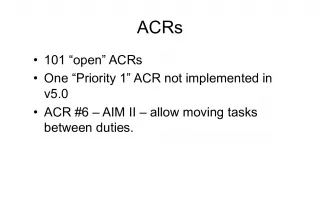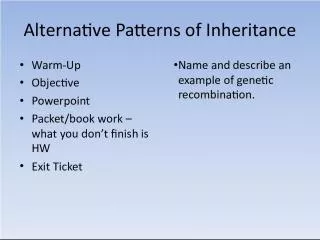Implementing Stacks and Queues in C using Linked Lists and Header Files


This article discusses the implementation of stacks and queues using linked lists and header files in the C programming language. It covers the basics of these data structures and provides sample code for implementation.
- Uploaded on | 11 Views
-
 mira
mira
About Implementing Stacks and Queues in C using Linked Lists and Header Files
PowerPoint presentation about 'Implementing Stacks and Queues in C using Linked Lists and Header Files'. This presentation describes the topic on This article discusses the implementation of stacks and queues using linked lists and header files in the C programming language. It covers the basics of these data structures and provides sample code for implementation.. The key topics included in this slideshow are Stacks, Queues, Linked Lists, Header Files, First In First Out,. Download this presentation absolutely free.
Presentation Transcript
1. Senem Kumova Metin Spring2009 STACKS AND QUEUES Chapter 10 in A Book on C
2. Senem Kumova Metin Spring2009 A LINKED LIST IMPLEMENTATION OF A QUEUE data next data next NULL data next cnt front rear queue node node node Queue: First-In-First-Out (FIFO) data structure
3. Senem Kumova Metin Spring2009 The header file: queue.h #define EMPTY 0 #define FULL 10000 typedef int data; typedef enum {false, true} boolean; struct node { int d; struct node *next; }; typedef struct node node; struct queue { int cnt; /* count of the elements */ node *front; /* ptr to the front element */ node *rear; /* ptr to the rear element */ }; typedef struct queue queue;
4. Senem Kumova Metin Spring2009 The header file: queue.h data front(const queue *q); boolean isempty(const queue *q); boolean isfull(const queue *q); void initialize(queue *q); void enqueue(data x, queue *q); data dequeue(queue *q);
5. Senem Kumova Metin Spring2009 Basic queue routines : ISEMPTY(),ISFULL() boolean isempty(const queue *q) /* RETURNS TRUE IF QUEUE IS EMPTY */ { return ((boolean) (q -> cnt == EMPTY)); /* if(q->cnt==EMPTY) return true; else return false */ } boolean isfull(const queue *q) /* RETURNS TRUE IF QUEUE IS FULL */ { return ((boolean) (q -> cnt == FULL)); }
6. Senem Kumova Metin Spring2009 Basic queue routines : FRONT() , INITIALIZE() data front(queue *q) // RETURNS DATA OF FRONT NODE { return (q -> front -> d); } void initialize(queue *q) // Count=0, No front and rear nodes { q -> cnt = 0; q -> front = NULL; q -> rear = NULL; }
7. Senem Kumova Metin Spring2009 Basic queue routines : ENQUEUE() /* Creating queue enqueue */ void enqueue(data x, queue *q) { node *p; p = malloc(sizeof(node)); // CREATE A NEW NODE p -> d = x; p -> next = NULL; if (!isempty(q)) /* IF QUEUE IS NOT EMPTY APPEND NEW NODE FROM REAR */ { q -> rear -> next = p; q -> rear = p; } else /* IF QUEUE IS EMPTY NEW NODE WILL BE FRONT AND REAR */ q -> front = q -> rear = p; q -> cnt++; }
8. Senem Kumova Metin Spring2009 data dequeue(queue *q) { data x; node *p; x = q -> front -> d; /* store data in x */ p = q -> front; /* store address of front node that will be deleted */ q -> front = q -> front -> next; /* determine new front node */ q -> cnt- - ; /* decrease count */ free(p); /* free node */ return x; } Basic queue routines : DEQUEUE()
9. Senem Kumova Metin Spring2009 void print(queue *q) { node * p; for(p=q->front; p!=NULL; p=p->next) printf("%d ", p->d); printf(\n); } Basic queue routines :PRINT()
10. Senem Kumova Metin Spring2009 main() { queue my_q; data x; int op; initialize(&my_q); do { printf(" PLEASE SELECT OPERATION\n"); printf(" ENQUEUE 1\n DEQUEUE 2\n FRONT 3\n IS FULL 4\n IS EMPTY 5\n PRINT 6 \n EXIT 7\n " ); scanf("%d",&op); /* SWITCH- CASE NEXT SLIDE */ } while(op!=7); }
11. Senem Kumova Metin Spring2009 switch(op) { case 1 : printf("Enter data : "); scanf("%d",&x); enqueue(x,&my_q); break; case 2: dequeue(&my_q); break; case 3: printf(" front: %d",front(&my_q)); break; case 4: if(isfull(&my_q)==true) printf("Queue is FULL"); else printf("Queue is NOT FULL"); break; case 5: /* similar to case 6 */ case 6: print(&my_q); break; case 7: exit(0); default : break; }
12. Senem Kumova Metin Spring2009 STACKS SAMPLE PSEUDO CODE: push(1) to Stack push(2) to Stack push(3) to Stack pop() from Stack push(4) to Stack
13. Senem Kumova Metin Spring2009 STACKS : Array Implementation #define STACK_SIZE 4 typedef struct { int data [STACK_SIZE]; int top; } stack;
14. Senem Kumova Metin Spring2009 STACKS(array imp. ) : Basic routines void reset(stack * stk) { stk->top=-1; } void push( int c, stack * stk) { if(stk->top!= STACK_SIZE-1) { stk->top++; stk->data[stk->top]=c; } else printf(Stack is full!!\n); } int pop (stack * stk) { if(stk->top!=-1) return (stk->data[stk->top- -]) else printf(stack is empty); }
15. Senem Kumova Metin Spring2009 STACKS (array implementation): main() x= pop(&n); push(11,&n); x= pop(&n); x= pop(&n); x= pop(&n); push(3,&n); push(2,&n); x= pop(&n); } main() { stack n; int x; reset(&n); push(4,&n); push(5,&n); push(3,&n); push(2,&n); push(1,&n);
16. Senem Kumova Metin Spring2009 Stacks: Linked List Implementation
17. Senem Kumova Metin Spring2009 #define EMPTY 0 #define FULL 10000 typedef char data; typedef enum {false, true} boolean; typedef struct { data d; struct node *next; } node ; typedef struct { int cnt; /* count of the elements */ node *top; /* pointer to the top element */ } stack; The header file: stack.h
18. Senem Kumova Metin Spring2009 boolean empty(const stack *stk); boolean full(const stack *stk); void initialize(stack *stk); void push(data d, stack *stk); char pop(stack *stk); char top(stack *stk); The header file: stack.h
19. Senem Kumova Metin Spring2009 boolean isempty(const stack *stk) { return (stk -> cnt == EMPTY); } boolean isfull(const stack *stk) { return (stk -> cnt == FULL); } void initialize(stack *stk) { stk -> cnt = 0; stk -> top = NULL; } data top(stack *stk) { return (stk -> top -> d); } Basic routines : Isempty(),Isfull(), Initialize(), Top()
20. Senem Kumova Metin Spring2009 void push(data d, stack *stk) { /* create new node */ node *p; p = malloc(sizeof(node)); p -> d = d; p -> next = stk -> top; /* assign new node as top node */ stk -> top = p; stk -> cnt++; } Basic routines : Push(),Pop() data pop(stack *stk) { data x; // will store the top data node *p; x = stk -> top -> d; p = stk -> top; stk -> top = stk -> top -> next; stk -> cnt- -; free(p); return x; }
21. Senem Kumova Metin Spring2009 void main(void) { char str[] = CS115; int i; stack s; initialize(&s); /* initialize the stack */ for (i = 0; str[i] != '\0'; ++i) /* fill stack */ { if (!full(&s)) push(str[i], &s); } printf(String in the stack: "); while (!empty(&s)) putchar(pop(&s)); }






















